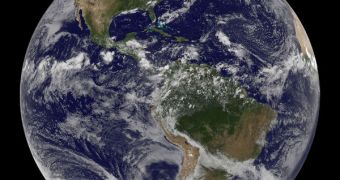Given the current woes the world is facing today, and the reluctance governments have in tackling these issues, the world may reach the limits of what it can sustain in less than a hundred years.
It's not hard for scientists to reach this conclusion, given the things that are wrong with the world today, and the data they are bringing to the table is nothing new.
A book published in 1972 made the same assumptions then, but it was too early for most people to grasp the concepts of global warming or climate change.
Now, awareness of climate change, food insecurity and biodiversity decline is making progressively larger numbers of people become more in tune with reality.
“If the present trends in world population, industrialization, pollution, food production, and resource depletion continue unchanged, the limits to growth on this planet will be reached sometime within the next 100 years,” reads a passage from the 1972 book.
The work is called “The Limits to Growth,” and it was authored by professor Dennis Meadows, in collaboration with the late Donella H. Meadows, Jorgen Randers and William H. Behrens III.
Among scientists dealing with environmental studies, the book was a major subject of controversy, with experts both sides of the aisle exchanging valid arguments.
“Today, we are at a point in human history where habits that once worked well don’t work anymore,” Meadows said recently in a conference.
He hit the nail right on the head with this remark, analysts say. The largest threat to our future is some people's inability to change their old ways, and embrace new truths.
Meadows made the announcement at the launch of the new graduate Masters program at the United Nations University, Our World reports.
Naturally, the expert also drew attention in his speech to other issues, such as overconsumption and overproduction, population growth and so on.
He reminded people that, though the Industrial Age made mass production a reality, sometime along the line the line between supply and demand was crossed in favor of the former.
This means that demand had to be rose artificially, through aggressive advertising and market expansions, which is precisely what has been going on in Africa under the pretense that the modern world is helping out.
The expert also outlined three categories of measures that governments and organizations could take to increase our chances of survival for the future.
First of all, children should be educated in a spirit that connects them to nature, This will help, for example, when they grow up, and perceive excessive deforestation as a crime.
The second is to turn consumers into citizens. This means that we need to change the paradigm in which corporations and governments earn the right to call us consumers rather than citizens.
This is a very negative habits, that perverts individual rights and perverts democracy. Critics to capitalism have drawn attention to this flaw decades ago, but things have been swept under a rug.
The third is de-urbanization and localization, which are concepts referring to living in smaller communities that cities housing millions of people.
The carbon footprints left behind by cities, and the demands they have, are hidden from citizens, and signals that would otherwise prevent excessive use of resources are lost here.
Because supermarkets are always full in the developed world, people tend to think that there is no problem, but they have no idea as to how destructive this practice is to the planet and to millions of other people.

 14 DAY TRIAL //
14 DAY TRIAL //